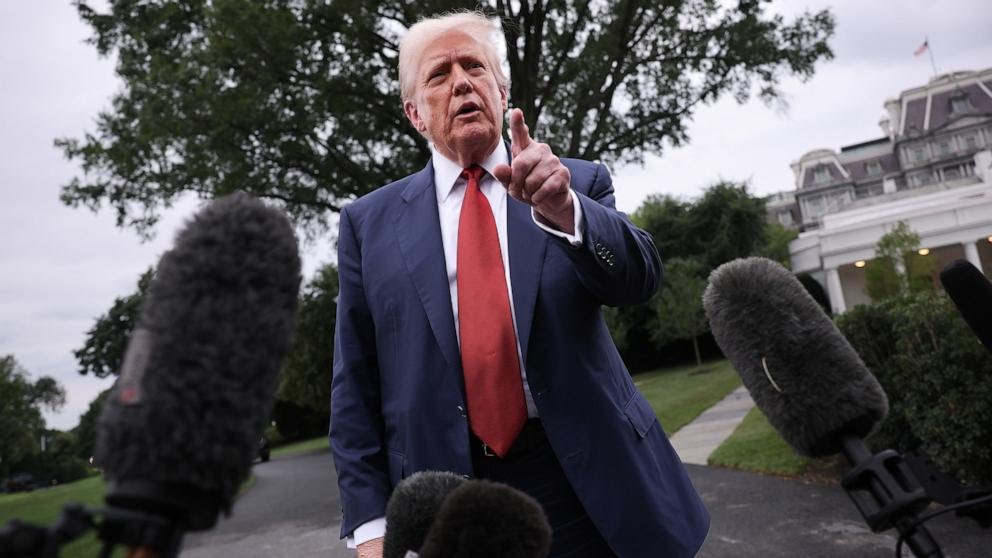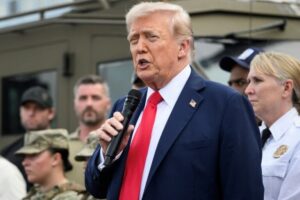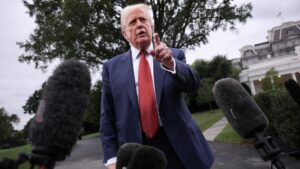
Trump Adds $100,000 Fee for Skilled Worker Visa Applicants
- Foreign News
- 20.09.2025
- No Comment
- 92
US President Donald Trump has signed a landmark executive order introducing a $100,000 annual fee for applicants to the H-1B visa programme for skilled foreign workers. The order cites “abuse” of the programme and places new restrictions on entry unless the payment is made.
This move marks one of the most significant changes to US immigration policy for skilled workers in decades.
The H-1B visa has long been at the centre of debate in the United States. Critics argue that it undercuts the American workforce, while supporters—including billionaire Elon Musk—claim it allows the US to attract top global talent.

Until now, H-1B visas carried administrative fees of about $1,500. With Trump’s new order, companies would have to pay $100,000 per applicant per year for six years for new requests, according to US Commerce Secretary Howard Lutnick.
Additional Immigration Changes: The “Gold Card” Visa
In another executive order, President Trump has introduced a new “gold card” fast-track visa for certain immigrants in exchange for fees starting at £1 million. This initiative is designed to target high-net-worth individuals seeking expedited entry into the US.
The order is set to take effect on 21 September and applies to new requests. “The company needs to decide… is the person valuable enough to have a $100,000-a-year payment to the government, or should they hire an American,” Lutnick said, adding that major corporations are already on board.

Since 2004, the number of H-1B applications has been capped at 85,000 per year, but recent data from US Citizenship and Immigration Services (USCIS) shows applications fell to about 359,000 for the next fiscal year—a four-year low.
Tech Giants and the H-1B Programme
The biggest beneficiaries of the H-1B programme in the last fiscal year were Amazon, Tata, Microsoft, Meta, Apple and Google. Late on Friday, Amazon advised its H-1B employees already in the US to remain there, while instructing those abroad to return before the deadline if possible.
Global Reaction to the $100,000 Visa Fee
India’s leading trade body Nasscom expressed deep concern about the new order, stating that the one-day deadline created “considerable uncertainty for businesses, professionals, and students across the world.” India remains the largest beneficiary of H-1B visas, accounting for 71% of approved applications last year, followed by China at 11.7%.

Legal Experts and Business Leaders Respond
Tahmina Watson, founding attorney at Watson Immigration Law, called the new ruling a “nail in the coffin” for many of her clients—mostly small businesses and start-ups. “Almost everyone’s going to be priced out. This $100,000 entry point will have a devastating impact,” she said, noting that many companies sponsor foreign talent only because they cannot fill positions domestically.
Jorge Lopez, chair of the immigration and global mobility practice group at Littler Mendelson PC, warned that the new fee “will put the brakes on American competitiveness” in tech and other industries, potentially forcing companies to consider operations outside the US.
Trump’s Mixed History on H-1B Visas
President Trump has expressed mixed views on H-1B visas over the years. While campaigning, he proposed green cards for college graduates and emphasized the need to attract top talent. Early in his first term in 2017, he signed an executive order increasing scrutiny of H-1B applications to improve fraud detection, which raised rejection rates to an all-time high of 24% in FY2018, compared to 5%-8% under Barack Obama and 2%-4% under Joe Biden.
Employers and potential H-1B applicants now face a stark new reality. Many small and medium-sized companies may be unable to afford the additional cost, potentially shifting hiring strategies or moving operations abroad. Meanwhile, larger corporations must weigh the cost against the value of foreign talent to maintain competitiveness in the global market.




